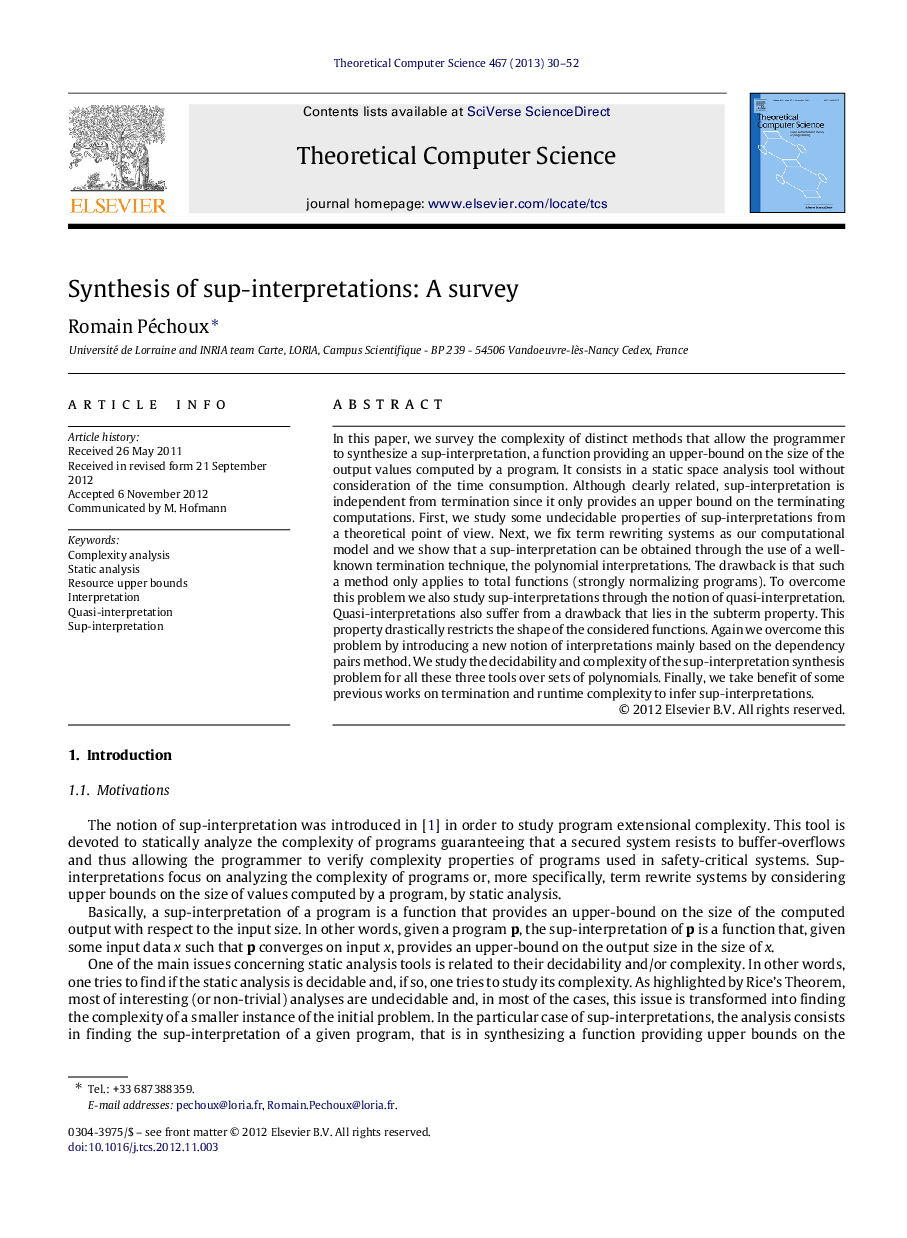| Article ID | Journal | Published Year | Pages | File Type |
|---|---|---|---|---|
| 436796 | Theoretical Computer Science | 2013 | 23 Pages |
In this paper, we survey the complexity of distinct methods that allow the programmer to synthesize a sup-interpretation, a function providing an upper-bound on the size of the output values computed by a program. It consists in a static space analysis tool without consideration of the time consumption. Although clearly related, sup-interpretation is independent from termination since it only provides an upper bound on the terminating computations. First, we study some undecidable properties of sup-interpretations from a theoretical point of view. Next, we fix term rewriting systems as our computational model and we show that a sup-interpretation can be obtained through the use of a well-known termination technique, the polynomial interpretations. The drawback is that such a method only applies to total functions (strongly normalizing programs). To overcome this problem we also study sup-interpretations through the notion of quasi-interpretation. Quasi-interpretations also suffer from a drawback that lies in the subterm property. This property drastically restricts the shape of the considered functions. Again we overcome this problem by introducing a new notion of interpretations mainly based on the dependency pairs method. We study the decidability and complexity of the sup-interpretation synthesis problem for all these three tools over sets of polynomials. Finally, we take benefit of some previous works on termination and runtime complexity to infer sup-interpretations.
